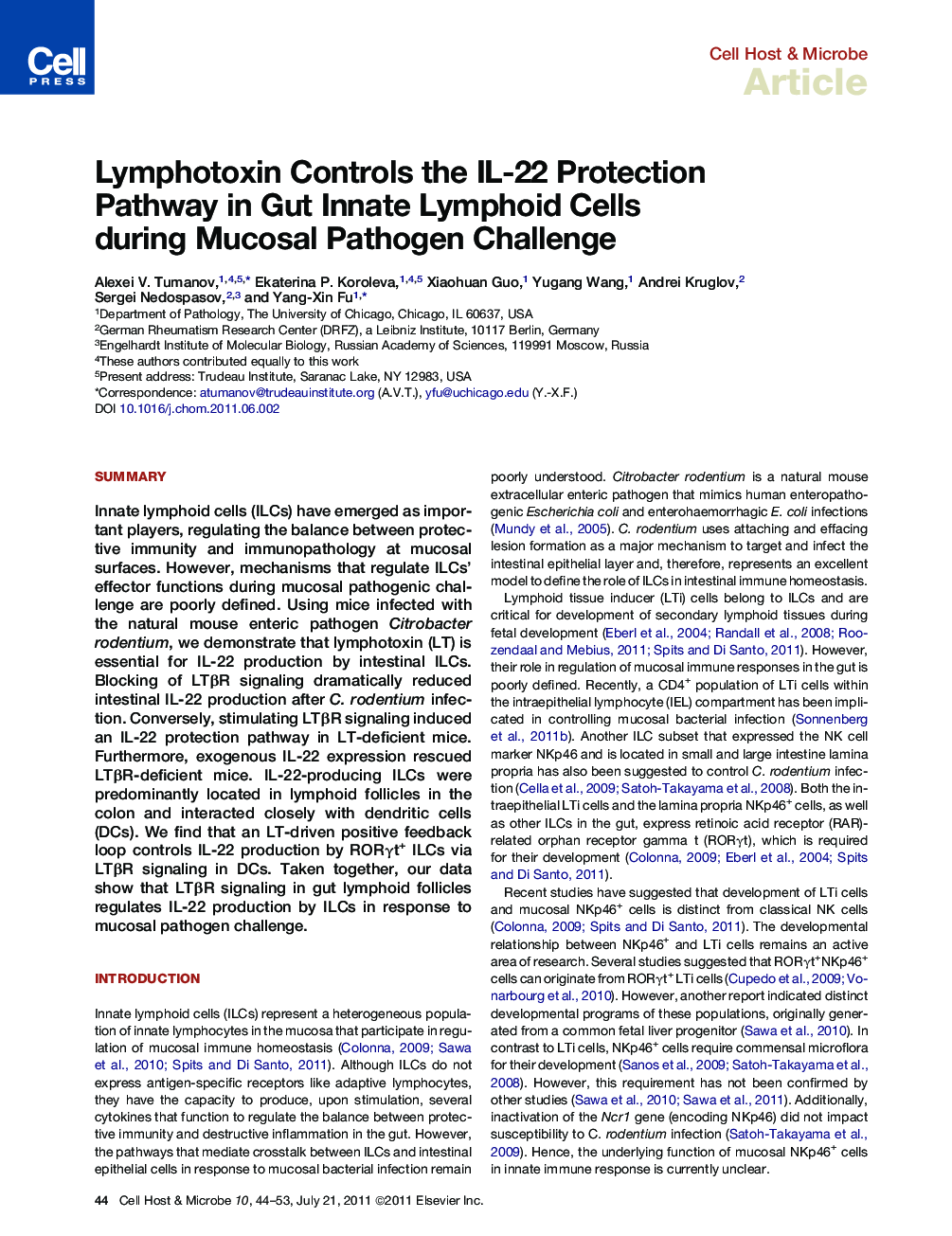| Article ID | Journal | Published Year | Pages | File Type |
|---|---|---|---|---|
| 4361693 | Cell Host & Microbe | 2011 | 10 Pages |
SummaryInnate lymphoid cells (ILCs) have emerged as important players, regulating the balance between protective immunity and immunopathology at mucosal surfaces. However, mechanisms that regulate ILCs' effector functions during mucosal pathogenic challenge are poorly defined. Using mice infected with the natural mouse enteric pathogen Citrobacter rodentium, we demonstrate that lymphotoxin (LT) is essential for IL-22 production by intestinal ILCs. Blocking of LTβR signaling dramatically reduced intestinal IL-22 production after C. rodentium infection. Conversely, stimulating LTβR signaling induced an IL-22 protection pathway in LT-deficient mice. Furthermore, exogenous IL-22 expression rescued LTβR-deficient mice. IL-22-producing ILCs were predominantly located in lymphoid follicles in the colon and interacted closely with dendritic cells (DCs). We find that an LT-driven positive feedback loop controls IL-22 production by RORγt+ ILCs via LTβR signaling in DCs. Taken together, our data show that LTβR signaling in gut lymphoid follicles regulates IL-22 production by ILCs in response to mucosal pathogen challenge.
► The lymphotoxin pathway regulates IL-22 production by RORγt+ innate lymphoid cells ► LTβR signaling in gut DCs triggers the innate immune response to mucosal pathogens ► RORγt+ ILCs communicate with DCs in gut lymphoid follicles for IL-22 production ► IL-22 represents an essential protection pathway downstream of LTβR signaling
